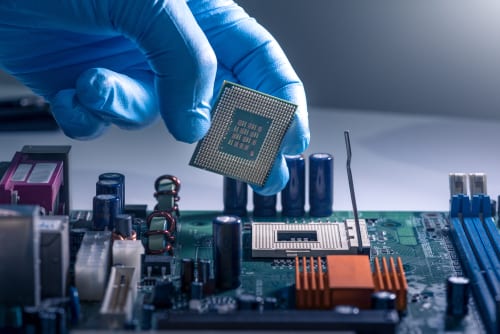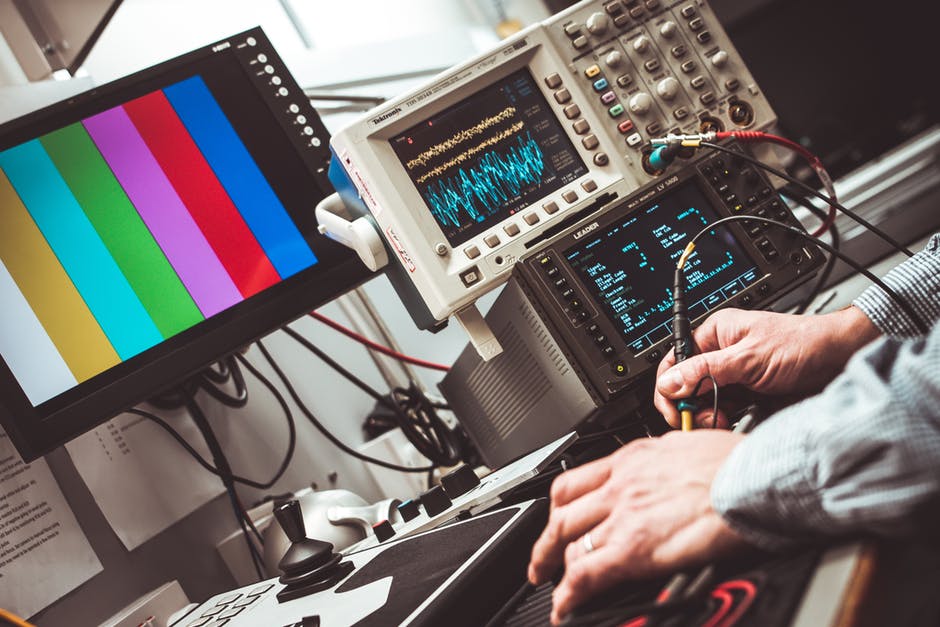| Disclosure: The links on this page are "Affiliate Links" and while these are shown at no costs to our viewers, they generate commissions for our website(s) |
Thinking of Getting A Degree in Computer Engineering? Here is Everything You Need to Know.

Intro
With the exponential rise in technological advancement, computer engineering is perhaps one of the fastest growing degrees out there. The benefits of such education include long-term job security and growth as well as a nice paycheck straight out of graduation. Computer engineering is the combination of electrical engineering and computer science – so much so that depending on which program you are enrolled in, your curriculum could very literally be 50 % electrical engineering coursework and 50% computer science – split right down the middle.
However, it is important to note that this only accounts for your core major courses. It does not include any elective coursework of course which can be tailored and customized based on your personal preference and range from a long list of computer engineering, computer science or electrical engineering classes to specialize in.
The details of this are up for discussion at a later point – but for now, let’s dive right into the nitty gritty and discuss specifically which classes one generally tends to take when enrolled in a computer engineering degree.

The Fundamentals
On the electronics side of the spectrum, you will be required to take all of the basic circuit classes where you learn resistor, capacitor and inductor circuits and much more! Yay! I was saying that sarcastically, but chances are if you are enrolled in a computer engineering degree, this can actually be quite a bit of fun.
You will spend much of your time solving for voltages and currents moving throughout the simpler circuits as a solid foundation to courses ahead. They will start you small, however the training you learn in these courses are the techniques and components that are foundations for circuits that exist everywhere and in everything from cell phones to computers, drones and even satellites.
You will also learn about the basics of binary and how computers make decisions using 1’s and 0’s. This includes learning things like logic gates. These take 1’s and 0’s and produce a certain output based on the input. Each different gate does something different based on those inputs. Computers have hundreds of millions of those and when strung together, this enables them to do very advanced digital processing such as for items like a digital lock, a wristwatch, or an alarm system.
Signal Processing
Individuals enrolled will also take a signal processing course where the main tasks include detailed observation and in-depth analysis of complicated signals or changing voltages in time. This is important in things like filter design and moving unwanted signals. An easily identifiable example of daily utility is how your car radio is constantly being hit by every radio station in your city at once – yet you only hear one at a time. So when you tune in to let’s say 94.5 FM, your car is allowing signals of 94.5 megahertz to pass to your speaker and filtering out everything else so you only can hear that station.
So you – being the computer engineering whiz kid that you are -- analyze the math behind the manipulation of these signals and see how to determine which frequencies they are made up of. This is essentially a math class and involves a good amount of calculus (fun!). So, if you were a math whiz in school or if high-level math and problem solving are your strong suits, then you will be perfectly suited for this.
Now, for those that are on the opposite end of the spectrum and tend to be more hands on, you will be happy to know that the computer science coursework you take won’t involve high level math (phew!). So, computer engineering really is kind of this happy medium fusing the two worlds and fortunately for many not as math intensive as your standard electrical engineering coursework.

Building On the Foundation
Lastly, you will take electronics courses. This is where you look at components such as transistors and diodes. A transistor has the ability to switch between a high and low voltage, like five and zero volts, and computers reads these as 1’s and 0’s – in binary code.
Fun fact: Did you know that there are over a billion transistors in your laptop to make it work and store all of the data?
So in essence, you will still be doing circuit analysis, however now with the knowledge of how transistors work and function, which are way different than simple resistors but apply the same principles and methodologies such as observing voltage in a loop and conservation of currents.
This class is a bit similar to the physics courses you would have taken in high school or college. In the lab you will hook up circuits on something called a breadboard -- these are where circuits go for basic testing. Then, once everything is deemed in proper working order, they are finally moved on to a standard circuit board – something which you have probably seen in computers and cell phones.
Software
Now let’s get into the software side of things. You will start to learn the basics of programming in what are called C and Java. C and Java are programming languages that have their own syntax and rules you have to follow in order to tell the computer what to do. These are the languages that Google, Facebook, LinkedIn etc. all use to make their websites work. These are their own beast in and of themselves and separate from the languages used for user experience and design in order to make the layout of a webpage look nice and fancy (HTML and CSS).
These programming languages are the backbone of the websites. They enable processes that enable Google to search their database and bring up results quickly, efficiently and with the best results first to help you find what you are looking for. They enable programs like Pandora to guess the most likely songs you will want to listen to based on what you have a ready listened to or rated. These are web programming languages accomplished. These languages build apps, video games, and instruct things like unmanned aircrafts and satellites.
Conclusion
Electronics and computer engineering are integral to nearly every aspect of 21 st century life. It ensures you have a constant power supply to your home using renewable electricity, the latest new technology on your smart phone, the fastest fiber optic broadband, or that you experience amazing surround sound at the cinema.
It makes cars more efficient and environmentally friendly and enables aircraft and spacecraft to fly more efficiently and more safely than ever before. It’s a dynamic subject concerned with finding innovative ways to solve today’s global challenges. A degree in this not only prepares you for an exciting technology driven career but simultaneously offers you the chance to literally help shape the future.






